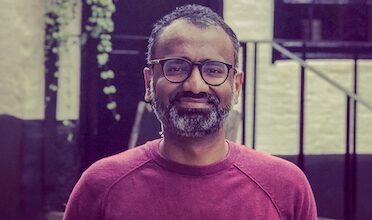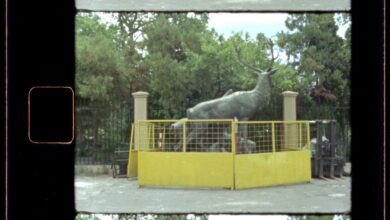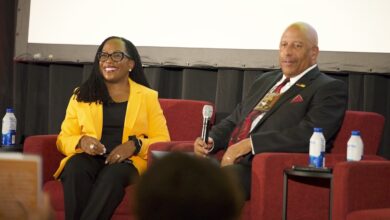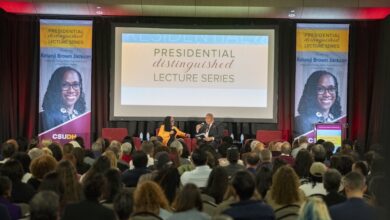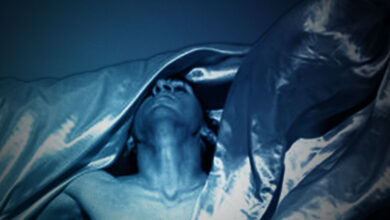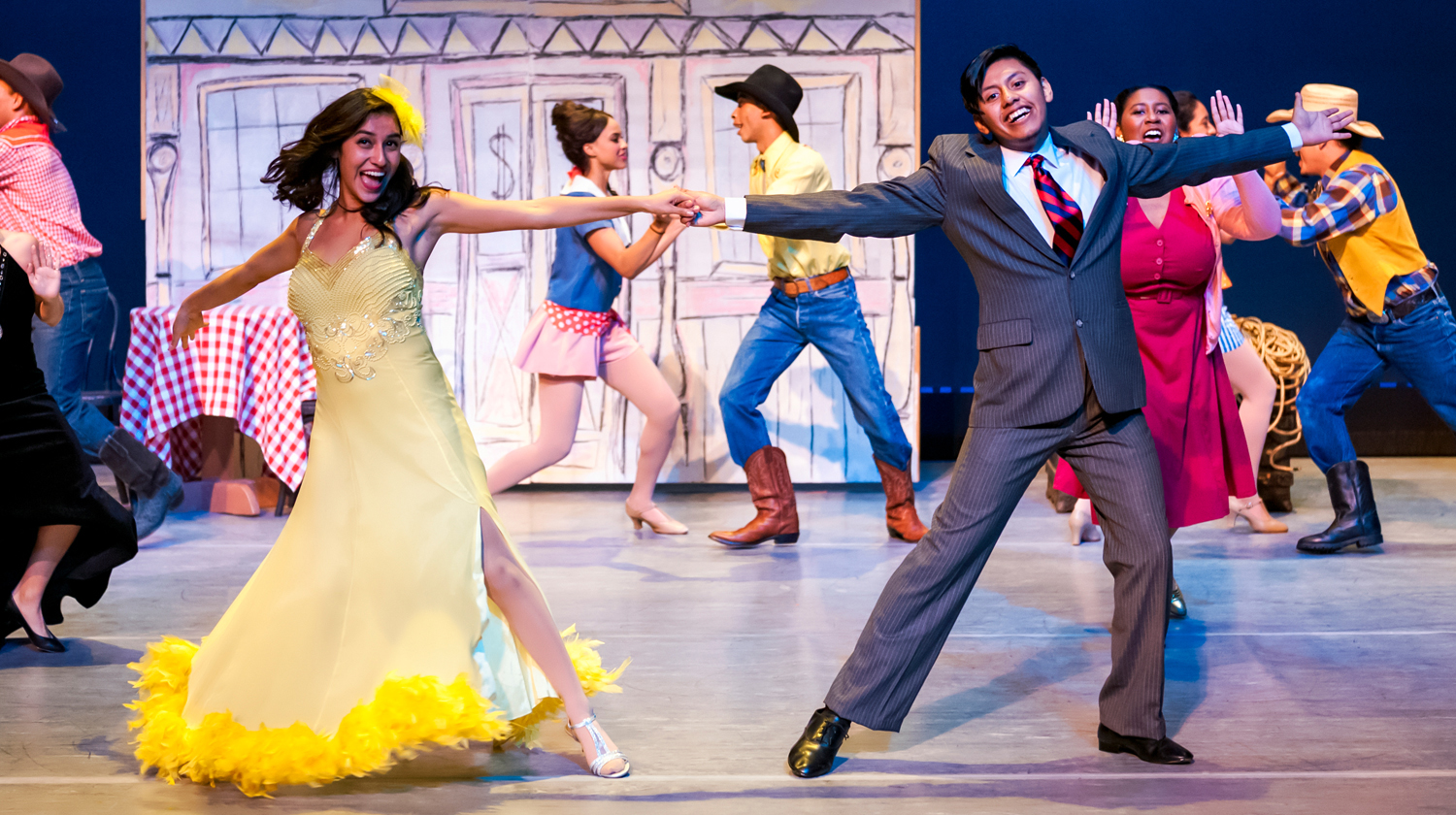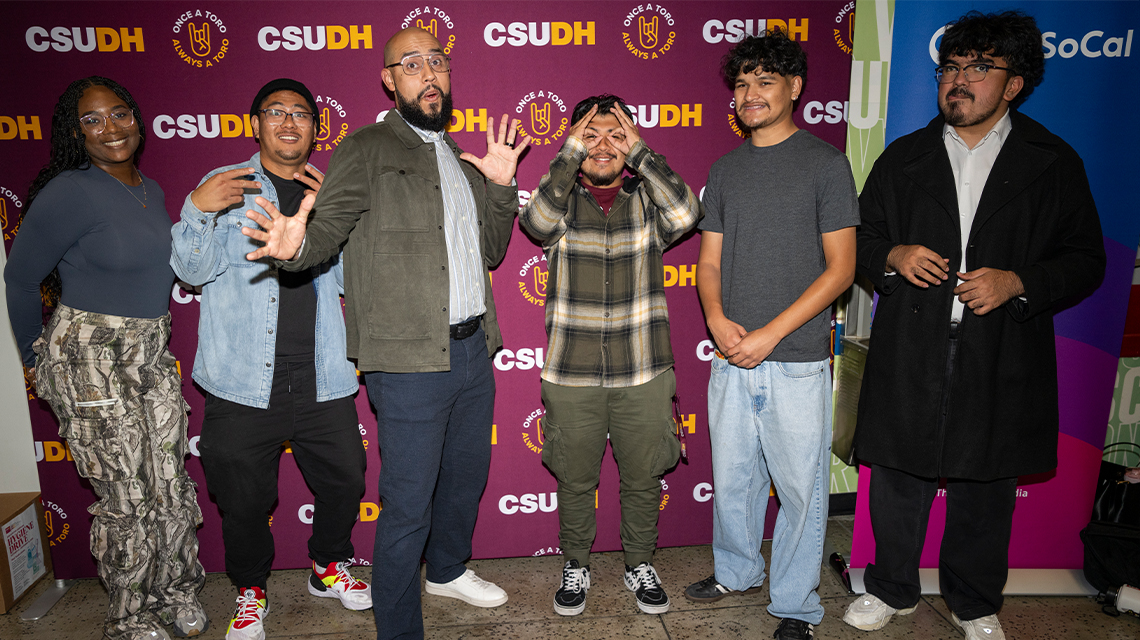
CSUDH alum Jesus Trejo wears several professional hats—standup comedian, actor, writer, award-winning children’s book author. What informs all these roles and serves as the touchstone for his humor is a deep connection to community.
“Comedy is being able to speak my truth in a funny way that resonates with people in my community,” says Trejo, who returned to his alma mater to screen two episodes of his new six-episode PBS docuseries Roots of Comedy. “And if you’re not in the community, you’ll get a deeper understanding of it.”
The screening and subsequent panel discussion took place at the Marvin Laser Recital Hall on Oct. 15 as part of the university’s Hollywood by the Horns program.

“This event is representative of the kind of opportunities that Hollywood by the Horns exists to support on campus. They create pathways to success for our students and community by exposing them to professionals in the field of film and television,” said program director Toddy Eames, an associate professor of Film, TV, and Media at CSUDH.
Trejo, a native of Long Beach, honed his craft at the Comedy Store in Los Angeles. His first stand-up special Stay at Home Son premiered on Showtime in 2020. He’s also served as a staff writer for the hit Hulu series This Fool, featuring fellow comedian and CSUDH alum Chris Estrada. Roots of Comedy debuted on PBS in May.
Equal parts comedy, social commentary, and travelogue, the series (all episodes are currently available for free on the PBS app and PBS.org) follows Trejo across the country as he meets six comedians who explore the mosaic of our nation through the lens of standup comedy.
Trejo, who earned his bachelor’s degree in business administration and marketing at CSUDH in 2010, was joined on campus by series director Donny Jackson and Sierra Katow, a Los Angeles-based comedian and actor who features in Episode 6 of the series. Julie Seabaugh, a celebrated comedy journalist and author, moderated the panel discussion.
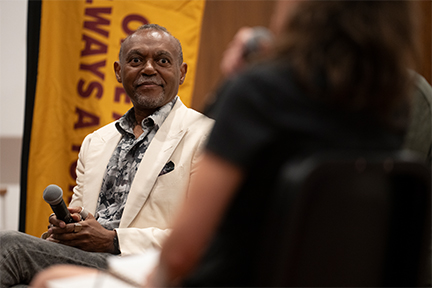
Roots of Comedy explores how experience, community, and identity shape comedians’ approaches to their craft. It grew out of the isolation and uncertainty of the COVID pandemic. At that time, the format for comedy changed in response to the global health crisis, says Trejo.
“It was about how to stay creative and keep a foot in comedy when most of us didn’t feel like comedians because standup as we knew it wasn’t happening,” Trejo said.
“Comedians were trying to do it on Zoom, which I hope never happens again. To bomb in the same place where you sleep is awful.”
Trejo said the first few years were spent building out the pitch deck, developing the concept, and securing funding. It was during this period that he was looking for a director, and he met Donny Jackson, a clinical psychologist-turned-Emmy Award winning producer and showrunner of CNN’s United Shades of America with W. Kamau Bell. “It was such a meaningful connection,” Trejo said. “I knew I could learn a lot from someone with his background and experience in the industry.”
Jackson brought many years of passionate storytelling and more than a decade of teaching and clinical practice in mental health—a theme that crosses several of the series’ episodes—to the project. But putting the humor and humanity at the heart of the project in an authentic way was essential.
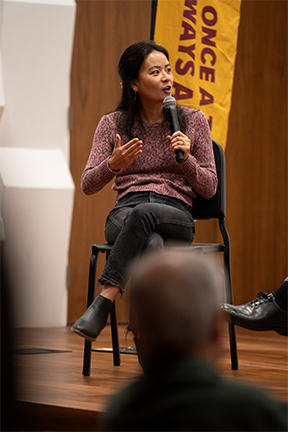
“It was important that we sit together and have meals together and listen to each other and tell stories about our lives, because humor is so important to the human experience,” Jackson said. “It’s something that we can get into the science of, but there are natural things that get set off in your head. You laugh, and then you feel better.”
Katow said the human experience and personally connecting through humor was a key part of her episode in the series.
“I love to see comedians and hear about who they are as people and the unique upbringings they had,” she said. “I’ve really enjoyed bringing that into my jokes and sharing authentic things about what’s going on in my life. Hopefully, other people find it interesting or funny.”
For Trejo, his career as a comedian, actor, and author is inseparable from the people and the community he loves and that have served as a source of strength and stability.
“I’ve always had strong ties to family. I set out to do this thing called stand-up, and my family has sacrificed so much to help me make that happen,” he said. “You have this support system of people that are rooting for you, and I remind myself of that whenever I feel like I’ve hit a slump.”

